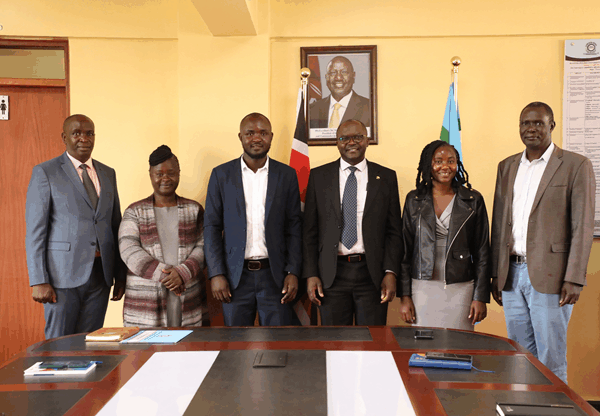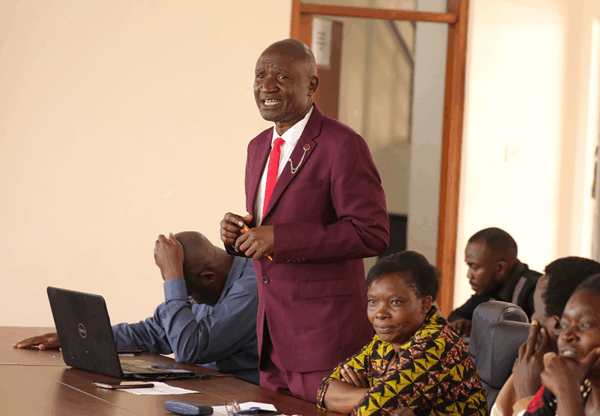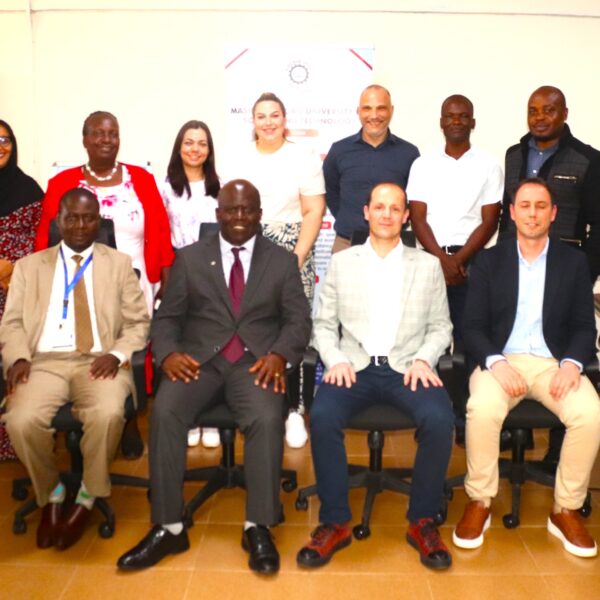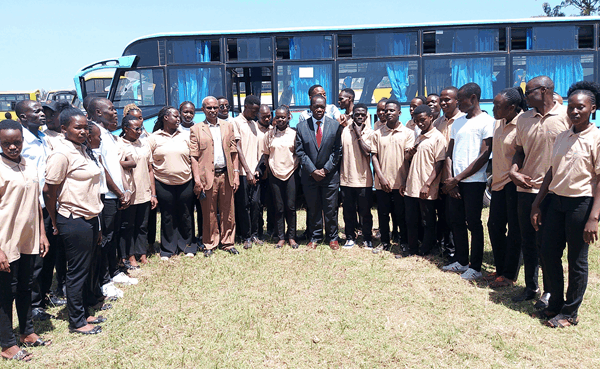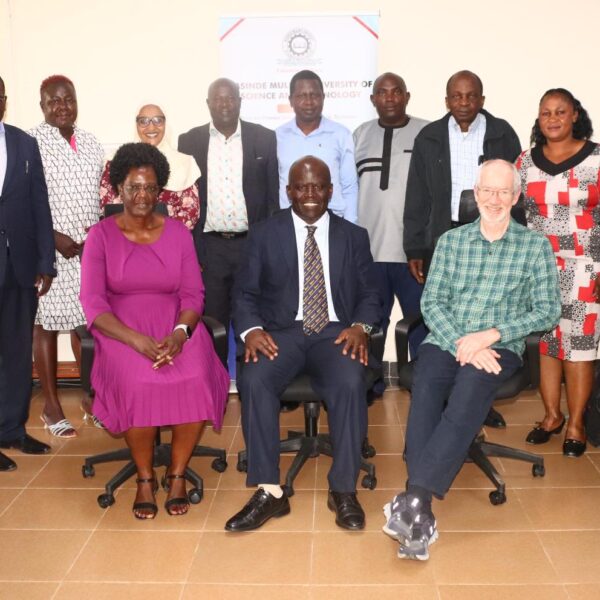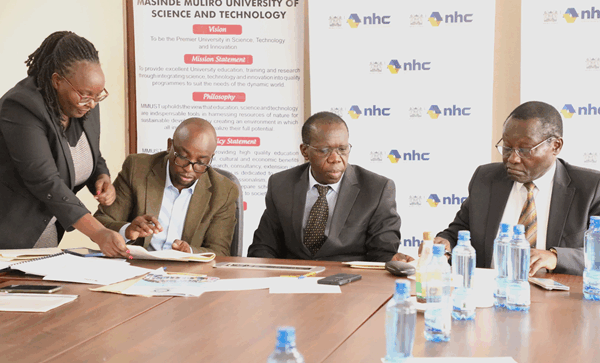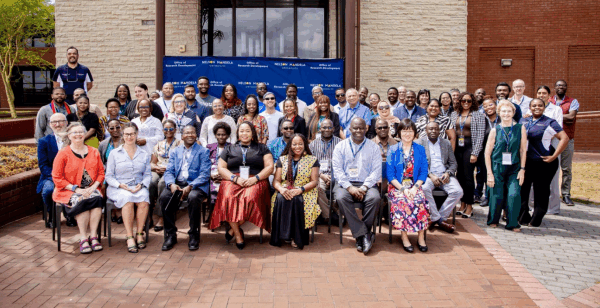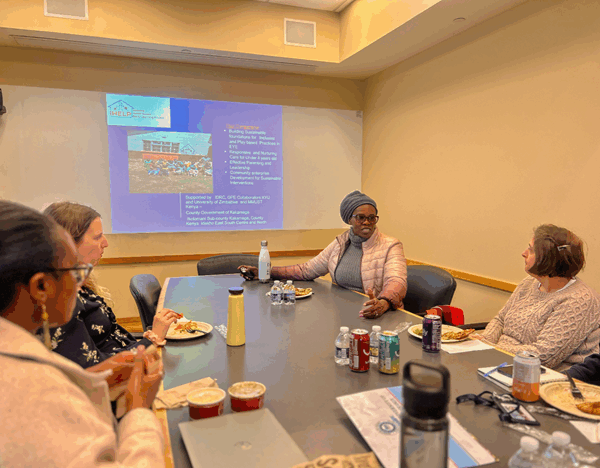Don’t Miss
MMUST Strengthens International Ties as SAVET Students Prepare to Depart for Romanian Mobility Program
Masinde Muliro University of Science and Technology is taking its global presence a notch higher as two students from the School of Agriculture, Veterinary Sciences and Technology (SAVET) prepare to depart for Romania this Friday,…
MMUST’s School of Arts and Social Sciences Undertakes Comprehensive Capacity-Building Exercise in Competency-Based Education Ahead of 2029 CBC Cohort
MMUST’s School of Arts and Social Sciences (SASS) has undertaken a comprehensive capacity-building exercise in Competency Based Education (CBE) in preparation for the anticipated first cohort of CBC learners expected in 2029. The week-long training,…
MMUST’s Dr. Edward Okaya Selected As External Reviewer For The First Full Draft Of The PISA 2029 Reading Framework!!
Masinde Muliro University of Science and Technology’s Dr. Edward Khasakhala Okaya has been selected by the Organization for Economic Co-operation and Development (OECD) to participate as an external reviewer for the first full draft of…
MMUST Researchers Secure €10,000 International Astronomical Union Grant To Boost Stem Learning Through Astronomy In Kisumu County
A team of researchers from Masinde Muliro University of Science and Technology (MMUST) is set to advance Science, Technology, Engineering and Mathematics (STEM) education in primary schools in Kisumu County following the award of a…
Professors From The University Of Rijeka Visit MMUST To Strengthen Academic And Research Collaboration
Masinde Muliro University of Science and Technology (MMUST) is hosting a delegation of five professors from the University of Rijeka, Faculty of Tourism and Hospitality Management, under the Erasmus+ Mobility Programme. The visit is part…
25 MMUST Students Honored By The President At State House, Receiving Gold Medals And Certificates For Their Resilience And Excellence!!
The President of the Republic of Kenya, H.E Dr. William Samoei Ruto, has honoured 25 MMUST students with gold medals and certificates for their resilience and excellence in the President’s Award-Kenya (PA-K) programme. This year’s…
MMUST Hosts Prof. Jones Scott to Strengthen Climate Change Collaboration
Masinde Muliro University of Science and Technology (MMUST), through its Department of Geography in the School of Arts and Social Sciences (SASS), on 10th February 2026, hosted Prof. Jones Scott, Associate Professor at Oslo New University…
MMUST Partners With National Housing Corporation To Construct Kshs. 90 Million Modern Lecture Hall Set To Enhance Academic Infrastructure
Masinde Muliro University of Science and Technology (MMUST) has entered into a project agreement with the National Housing Corporation (NHC) to construct a state-of-the-art lecture hall complex valued at Kshs. 90 million. The agreement, which…
MMUST Participates in Madiba Nexus 2026 International Workshop as It Strengthens Global Research Partnerships
Masinde Muliro University of Science and Technology (MMUST) has participated in the Madiba Nexus 2026 International Workshop, held from 20th to 23rd January, 2026 at the Nelson Mandela University (NMU) Ocean Sciences Campus, South Africa. This workshop was organized under…
MMUST’s Researcher Dr. Rose Opiyo Delivers Lecture at Duke University, USA, on Evidence-Based Interventions for ‘At-Risk Children’ and Adolescents in Kenya
Masinde Muliro University of Science and Technology researcher Dr. Rose Opiyo who is also the Associate Dean, School of Education, on 28th January 2026, delivered a compelling lecture at Duke University’s Sanford Center for Child and Family Policy…

